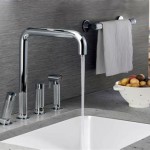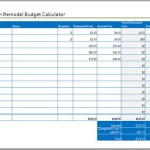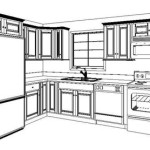Kitchen Remodel in Tampa, FL: A Comprehensive Guide
The kitchen, often regarded as the heart of the home, is a space where meals are prepared, memories are made, and families gather. In Tampa, Florida, as in many other locales, kitchen remodeling projects are a common way for homeowners to enhance their living spaces, increase property value, and modernize outdated designs. This article provides a comprehensive guide to kitchen remodeling in the Tampa, FL area, addressing key considerations, planning steps, and potential challenges.
Tampa's unique climate and architectural styles influence kitchen design choices. Coastal influences are prevalent, with homeowners often opting for light, airy designs that incorporate natural materials and colors that reflect the surrounding beaches and ocean. Functionality remains paramount, with a focus on creating practical and efficient workspaces for cooking and entertaining.
Before embarking on a kitchen remodel, it is crucial to establish a clear understanding of the project's scope, budget, and desired outcome. Thorough planning is essential to ensure a smooth and successful renovation process.
Defining the Scope of the Remodel
The first step in any kitchen remodeling project is to define the scope. This involves determining what aspects of the kitchen will be addressed. Projects can range from minor cosmetic updates to complete structural overhauls. Cosmetic updates might include painting cabinets, replacing hardware, or installing a new backsplash. A more comprehensive remodel could involve replacing cabinets and countertops, updating appliances, reconfiguring the layout, or even expanding the kitchen's footprint.
A crucial aspect of defining the scope is identifying existing problems or limitations. Is the current layout inefficient? Is storage space inadequate? Are appliances outdated and energy-inefficient? Addressing these issues should be a primary focus of the remodel.
Consideration should also be given to the homeowner's lifestyle and needs. A family that enjoys cooking elaborate meals will require a different kitchen design than a household that primarily uses the kitchen for simple meal preparation. Understanding these needs will help determine the optimal layout, appliance choices, and storage solutions.
Budgeting for a Kitchen Remodel
Budgeting is a critical component of kitchen remodeling. It is important to establish a realistic budget early in the process to avoid cost overruns and financial strain. The cost of a kitchen remodel can vary significantly depending on the scope of the project, the materials chosen, and the labor costs associated with the work. In Tampa, Florida, labor rates and material costs can fluctuate, so it is essential to obtain multiple quotes from reputable contractors.
Factors that influence the cost of a kitchen remodel include:
*Cabinetry:
Cabinets typically represent a significant portion of the overall budget. Custom cabinets are generally more expensive than stock or semi-custom options. *Countertops:
The material chosen for countertops can significantly impact the cost. Granite, quartz, and marble are popular choices, but each comes with a different price point. *Appliances:
New appliances can add considerably to the budget, especially if high-end or smart appliances are selected. *Flooring:
Flooring options range from affordable vinyl and tile to more expensive hardwood and stone. *Labor:
Labor costs will vary depending on the contractor's experience, the complexity of the project, and the location within Tampa. *Plumbing and Electrical:
If the remodel involves relocating plumbing or electrical fixtures, these costs can add up. *Permits:
Building permits are required for many kitchen remodeling projects, and the cost of these permits should be included in the budget.It is advisable to allocate a contingency fund within the budget to cover unexpected expenses that may arise during the renovation process. A general rule of thumb is to set aside 10-15% of the total budget for contingencies.
Obtaining multiple quotes from different contractors is crucial for comparing prices and ensuring that the budget is realistic. Be sure to review the quotes carefully and compare the materials and services included in each estimate.
Selecting a Qualified Contractor
Choosing the right contractor is arguably the most important decision in a kitchen remodeling project. A qualified and experienced contractor can ensure that the project is completed on time, within budget, and to a high standard of quality. In Tampa, Florida, there are numerous contractors specializing in kitchen remodeling, so it is important to conduct thorough research and due diligence before making a selection.
When selecting a contractor, consider the following factors:
*Licensing and Insurance:
Verify that the contractor is properly licensed and insured to operate in Tampa, Florida. Licensing ensures that the contractor has met certain qualifications and standards, while insurance protects the homeowner from liability in case of accidents or damages during the renovation process. *Experience and Expertise:
Look for a contractor with extensive experience in kitchen remodeling. A contractor who has completed numerous similar projects is more likely to be familiar with the challenges and best practices associated with kitchen renovations. *References and Reviews:
Request references from previous clients and take the time to contact them. Ask about their experience working with the contractor, the quality of the workmanship, and the level of communication and customer service provided. Online reviews on platforms like Google, Yelp, and the Better Business Bureau can also provide valuable insights. *Communication and Collaboration:
Choose a contractor who is responsive, communicative, and willing to collaborate with the homeowner throughout the project. Effective communication is essential for ensuring that the project stays on track and that any issues are addressed promptly. *Contract and Payment Schedule:
Ensure that the contractor provides a detailed written contract that outlines the scope of work, the materials to be used, the payment schedule, and any warranties or guarantees. A clear and comprehensive contract can help prevent misunderstandings and disputes down the road.It is also important to ask the contractor about their project management process, their approach to handling unexpected issues, and their commitment to customer satisfaction. A reputable contractor will be transparent and willing to answer all questions thoroughly.
In Tampa, many homeowners choose to work with a kitchen designer in conjunction with a general contractor. A kitchen designer can help with layout planning, material selection, and overall aesthetics to create a space that is both functional and visually appealing. The contractor then executes the design, ensuring that the renovation is completed according to the plans.
Once a contractor is selected, a detailed timeline for the project should be established. This timeline should outline the various stages of the renovation, from demolition to final inspection. It is important to maintain open communication with the contractor throughout the project to ensure that progress is being made according to the timeline and that any potential delays are addressed promptly.
The selection of materials is another critical aspect of kitchen remodeling. The materials chosen will impact both the aesthetics and the functionality of the space. In Tampa, Florida, homeowners often opt for materials that are durable, easy to maintain, and well-suited to the humid climate.
Countertop options include granite, quartz, marble, and solid surface materials. Granite is a natural stone that offers a unique and durable surface. Quartz is an engineered stone that is known for its stain resistance and low maintenance. Marble is a luxurious stone that is often used in high-end kitchens.
Cabinetry options range from stock cabinets to custom-built cabinets. Stock cabinets are the most affordable option, while custom cabinets offer the greatest flexibility in terms of design and size. Semi-custom cabinets provide a balance between affordability and customization. Wood, laminate, and metal are common cabinet materials.
Flooring options include tile, hardwood, laminate, and vinyl. Tile is a durable and water-resistant option that is well-suited to kitchens. Hardwood flooring adds warmth and elegance to the space. Laminate flooring is a cost-effective and easy-to-maintain option. Vinyl flooring is a durable and water-resistant option that is available in a wide range of styles.
The layout of the kitchen is also a crucial consideration. An efficient and well-designed layout can make the kitchen more functional and enjoyable to use. Common kitchen layouts include the U-shaped kitchen, the L-shaped kitchen, the galley kitchen, and the island kitchen.
The U-shaped kitchen is characterized by countertops and cabinets that wrap around three walls. This layout provides ample counter space and storage. The L-shaped kitchen features countertops and cabinets that run along two adjacent walls. This layout is well-suited to smaller kitchens. The galley kitchen is characterized by two parallel runs of countertops and cabinets. This layout is often found in apartments and smaller homes. The island kitchen incorporates an island in the center of the space. The island can serve as a workspace, a seating area, or a storage area.
Lighting is another important element of kitchen design. Adequate lighting is essential for both safety and functionality. The kitchen should have a combination of ambient lighting, task lighting, and accent lighting. Ambient lighting provides overall illumination, task lighting provides focused light for specific tasks, and accent lighting highlights architectural features or decorative elements.
During the renovation process, it is important to maintain open communication with the contractor and to address any issues or concerns promptly. The renovation process can be disruptive, so it is important to prepare for the inconvenience and to establish a temporary kitchen area if necessary.
Regular site visits can help ensure that the project is progressing according to plan and that the quality of the workmanship is satisfactory. Be sure to document any changes or modifications to the original plan in writing to avoid misunderstandings.
Upon completion of the renovation, a final inspection should be conducted to ensure that all work has been completed according to code and to the homeowner's satisfaction. A punch list of any remaining items or defects should be created and addressed promptly.
A well-planned and executed kitchen remodel can transform a living space and enhance the homeowner's quality of life. By carefully considering the scope of the project, establishing a realistic budget, selecting a qualified contractor, and choosing appropriate materials, homeowners in Tampa, Florida can create a kitchen that is both functional and beautiful.

Best Kitchen Remodeling Design Services In Tampa Fl

Kitchen Remodel Tampa Bay West Shore Construction

The Best Kitchen Remodeling Contractors In Tampa Home Builder Digest

Kitchen Remodel South Tampa Fl

5 Inspiring Kitchen Designs S W Kitchens

About Us Top Bathroom Kitchen Remodel Service Tampa Fl

Understanding The Cost Of Kitchen Remodels In Tampa Hrc Remodeling

The Best Kitchen Remodeling Contractors In Tampa Home Builder Digest

Beautiful Tampa Home Gets A Makeover With Pops Of Blue

Experts In Kitchen Remodeling Tampa Fl
Related Posts








